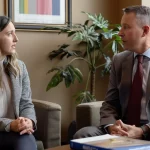Motorcycle accidents in Dallas are a significant concern for riders and drivers alike. In 2020 alone, there were over 2,200 motorcycle accidents in Texas, many resulting in severe injuries or fatalities. This article will examine the causes of these accidents, the alarming rate of motorcycle fatalities, and essential safety measures that can protect riders. By understanding these factors, readers will gain valuable insights into reducing the risk of accidents and the potential for serious health issues, such as road rash or trauma from collisions with trucks. Addressing these issues can help mitigate the dangers associated with riding, ultimately leading to safer experiences on the road.
Key Takeaways
- Driver behavior, particularly impaired driving, is a major cause of motorcycle accidents in Dallas
- Poor road conditions significantly increase risks for motorcyclists and can lead to severe injuries
- Understanding insurance coverage is crucial for riders involved in accidents to support their claims
- Young riders between 25 and 34 are often at higher risk in motorcycle crashes
- Innovations in motorcycle technology can enhance safety and reduce accident rates over time
Analyzing the Causes of Motorcycle Accidents in Dallas

Common factors contributing to motorcycle accidents include driver behavior, road conditions, and weather impacts. The analysis will explore how these elements affect fault determination and injuries sustained in collisions. Additionally, the relationship between different motorcycle types and accident statistics will be discussed, highlighting the significance of understanding product liability, property damage, and personal injury services when assessing these incidents.
Understanding Common Factors Contributing to Motorcycle Accidents
Motorcycle accidents in Dallas often result from various elements, with driver behavior being a critical factor. Incidents involving individuals driving under the influence significantly increase the likelihood of collisions, resulting in serious injuries for riders. As motorcycle safety advocates observe, raising awareness about the dangers of impaired driving can help reduce these unfortunate occurrences and protect those on two wheels.
Road conditions also play a vital role in motorcycle safety, with poor infrastructure and weather-related hazards contributing to accidents. Riders should remain vigilant in maintaining their motorcycles and checking insurance coverage that may impact a personal injury claim in the event of an accident. By understanding and addressing these factors, motorcyclists can make informed decisions that enhance their safety while navigating the streets of Dallas:
| Factor | Description |
|---|---|
| Driver Behavior | Impaired driving often leads to increased accident rates. |
| Road Conditions | Poor infrastructure can create hazardous situations for motorcyclists. |
| Weather Impacts | Adverse weather can compromise visibility and traction. |
| Insurance Considerations | Insurance policies affect the outcome of personal injury claims. |
The Impact of Road Conditions on Motorcycle Safety
Road conditions are a significant concern for motorcycle safety in Dallas. Potholes, gravel, and uneven surfaces can pose serious risks for riders, leading to accidents that may leave individuals suffering from severe injuries. Addressing these conditions through regular maintenance of roadways is crucial to prevent Dallas motorcycle accidents and ensure safer travel for all motorcyclists.
Riders are encouraged to remain vigilant and adapt their driving strategies based on the road conditions they encounter. For instance, slow speeds in areas with debris or poor visibility can reduce the likelihood of an accident. By understanding how varied road conditions influence safety, motorcyclists can better protect themselves while enjoying the ride. contact us today for more information on how these factors can impact personal injury claims related to motorcycle incidents:
- Common road hazards affecting motorcycle safety.
- The importance of adapting riding strategies based on conditions.
- How road maintenance can decrease the likelihood of accidents.
- Seeking professional assistance for personal injury claims.
The Role of Driver Behavior in Motorcycle Collision Rates
Driver behavior plays a pivotal role in the frequency of motorcycle accidents, particularly in Dallas. The impact of drunk driving cannot be overstated, as alcohol impairs judgment and reaction times, significantly increasing the likelihood of collisions with motorcyclists. Individuals operating vehicles under the influence of alcohol not only endanger themselves but also the riders they share the road with, leading to devastating injuries that often require personal injury claims.
Furthermore, comparative negligence often comes into play in accident cases where both parties share some fault. For instance, if a motorcyclist encounters an aggressive driver who fails to yield, both may bear a portion of the liability. This highlights the need for experienced legal representation, as an expert witness can provide the necessary insights to navigate the complexities of such cases, ensuring that victims receive fair compensation for their injuries and losses.
- Drunk driving significantly contributes to motorcycle accident rates.
- Alcohol impairs judgment and reaction times of drivers.
- Comparative negligence can complicate liability in accidents.
- Expert witnesses can provide valuable insights in personal injury claims.
Effects of Weather Conditions on Motorcycle Accidents in Dallas
Weather conditions significantly influence the frequency and severity of motorcycle accidents in Dallas. Rain, fog, and high winds can impair visibility and traction for riders, increasing the likelihood of unexpected falls or collisions. It’s essential for motorcyclists to stay vigilant and adjust their riding strategies during adverse weather, as this can greatly enhance their safety on the roads.
In light of weather-related risks, understanding one’s insurance policy is important. Riders should be aware of how different weather conditions may impact their personal injury claims. Should a motorcycle accident occur due to poor weather visibility, having a knowledgeable lawyer can provide the necessary guidance to navigate the statute of limitations and effectively address claims, ensuring that injured riders receive the attention and support they need for a free case evaluation.
Relationship Between Motorcycle Types and Accident Statistics
The type of motorcycle can significantly influence accident statistics, particularly concerning rear-end collisions. Certain models, such as cruisers and sportbikes, are involved in accidents more frequently due to their speed and maneuverability, which can lead to aggressive driving behaviors. When a plaintiff presents a case involving motorcycle accidents, understanding the type of bike involved is essential for establishing liability and assessing the severity of injuries sustained.
Examining Motorcycle Fatalities in Dallas

A comprehensive analysis of motorcycle fatalities in Dallas reveals critical insights into traffic trends and safety measures. This section will cover current statistics on motorcycle deaths, demographics of riders involved in fatal accidents, and high-risk areas prone to incidents. Additionally, key trends over the years will be examined, alongside how the use of safety gear can enhance survival rates in motorcycle accidents.
Understanding these elements can equip riders and their families with practical knowledge regarding health care costs and potential legal considerations, especially in cases involving hit-and-run situations. Insights into the role of paralegals in these matters will also be highlighted.
Overview of Motorcycle Fatality Statistics in Dallas
Motorcycle fatalities in Dallas have shown concerning trends, particularly due to factors like alcohol impairment and high-risk riding behaviors. Statistics indicate that a significant number of deaths involve collisions with cars, often resulting in severe neck injuries. The data emphasizes the need for heightened awareness and safety measures, especially when it comes to the responsibilities of drivers sharing the road with motorcyclists.
At the heil law firm, advocates for motorcycle safety understand that thorough investigations following fatal accidents are essential. Eyewitness accounts can provide critical insights into the circumstances surrounding incidents involving motorcycles and cars. By addressing these factors, the community can strive to reduce fatalities and enhance rider safety through education and improved driving behaviors.
- Trend analysis of motorcycle fatalities in Dallas.
- Impact of alcohol on accident rates and seriousness of injuries.
- Importance of eyewitness testimonies in understanding accidents.
- Strategies for improving motorcycle safety in the community.
Understanding the Demographics of Motorcyclists Involved in Fatal Accidents
Understanding the demographics of motorcyclists involved in fatal accidents is crucial for pinpointing effective safety measures in Dallas. Data indicates that many victims of motorcycle crashes tend to be younger riders, often between the ages of 25 and 34. This age group frequently engages in riskier riding behaviors, which can lead to tragic outcomes, including spinal cord injuries or even wrongful death claims when collisions with larger vehicles occur.
Additionally, the impact of accidents extends beyond the immediate injuries sustained. Families may experience loss of consortium following these tragedies, highlighting the emotional and financial toll on loved ones left behind. Recognizing these demographic factors enables community leaders and safety advocates to tailor safety programs and initiatives that address the specific needs of high-risk motorcyclists, ultimately aiming to reduce fatal incidents on the roads:
- Younger riders are often at higher risk in motorcycle crashes.
- Spinal cord injuries are a common consequence of severe accidents.
- Wrongful death claims may arise from fatal motorcycle collisions.
- The emotional toll includes loss of consortium for affected families.
Identifying High-Risk Areas for Motorcycle Fatalities
Identifying high-risk areas for motorcycle fatalities in Dallas is crucial for enhancing rider safety and reducing accidents. Locations such as busy intersections and highways with heavy traffic are notorious for collisions, often resulting in severe injuries or fatalities. According to the Texas Department of Transportation, these areas are frequently monitored for patterns related to motorcycle accidents, allowing law enforcement and safety advocates to implement preventive measures aimed at raising awareness among drivers and motorcyclists alike.
In addition to traffic patterns, road conditions also play a significant role in determining risk levels. Potholes and debris commonly found on these roads can contribute to accidents that may result in broken bones or property damage. Riders should be cautious when navigating these high-risk zones and consider the importance of carrying proper insurance that includes coverage for accidents in dangerous areas, ensuring that they receive the necessary support in the event of a collision necessitating an ambulance response.
Key Trends in Motorcycle Fatalities Over the Years
Recent analysis of motorcycle fatalities in Dallas highlights a concerning increase in incidents, particularly among riders without the proper vehicle license. Many of these fatal accidents can be traced back to factors such as impaired driving and risky behaviors. It is crucial for motorcyclists to undergo adequate training and obtain the necessary licenses to enhance safety and reduce fatal outcomes.
Examining the data, evidence indicates a correlation between motorcycle fatalities and specific road conditions, such as those leading to slip and fall accidents. Additionally, the importance of rehabilitation therapy for injured riders cannot be overlooked, as proper recovery can significantly impact long-term outcomes and overall well-being. By understanding these key trends, stakeholders can develop targeted safety measures to protect motorcyclists in Dallas.
| Year | Number of Fatalities | License Status | Common Causes |
|---|---|---|---|
| 2018 | 45 | Unlicensed | Impairment, Speeding |
| 2019 | 52 | Licensed | Weather Conditions, Recklessness |
| 2020 | 39 | Unlicensed | Driver Error, DUI |
| 2021 | 60 | Licensed | Road Hazards, Poor Visibility |
Impact of Safety Gear on Survival Rates in Motorcycle Accidents
Safety gear plays a critical role in reducing fatalities in motorcycle accidents in Dallas. Studies indicate that the use of helmets can significantly decrease the percentage of deaths related to accidents, as they protect riders from severe head injuries during collisions. In the context of a motorcycle accident case, evidence showing the absence of a helmet can influence liability and compensation, highlighting the importance of protective gear for rider safety.
Moreover, the impact of distracted driving remains a leading cause of motorcycle accidents, often resulting in tragic outcomes. Riders equipped with proper safety gear, including helmets and jackets, are better protected when faced with reckless drivers. Ensuring the use of this equipment is essential not only for personal safety but also for strengthening a legal case should a rider suffer injury or death due to another driver’s negligence.
Implementing Safety Measures for Motorcyclists in Dallas

Recommended safety gear, including helmets and visibility-enhancing clothing, significantly reduces the risk of serious injury in motorcycle accidents. Essential riding techniques improve handling and response on highways. Motorcycle safety courses in Dallas equip riders with crucial skills and knowledge. Local initiatives promote awareness, while knowing how to report unsafe driving behavior contributes to safer roads for all. Each of these components plays a vital role in enhancing motorcycle safety.
Recommended Safety Gear and Its Effectiveness
Wearing recommended safety gear is crucial for motorcyclists navigating the Dallas North Tollway. High-quality helmets, protective jackets, and reinforced gloves significantly reduce the risk and severity of injuries in motorcycle crashes. Studies show that proper gear can greatly enhance a rider’s survival chances, especially in emergencies where quick decisions are necessary to avoid accidents.
Incorporating visibility-enhancing clothing is also essential for safety on Dallas roads. Bright colors and reflective materials can make riders more noticeable to other drivers, especially in low-light conditions or during inclement weather. By investing in the right safety gear, motorcyclists can protect themselves from potential injuries, thereby reducing the likelihood of expensive lawsuits that may arise from motorcycle accidents.
- Importance of high-quality helmets in reducing injury risk.
- Benefits of protective jackets and gloves for rider safety.
- The role of visibility-enhancing clothing in preventing accidents.
Essential Motorcycle Riding Techniques for Increased Safety
To enhance motorcycle safety in Dallas, riders must adopt essential techniques that minimize the risk of accidents. One crucial approach is to maintain a safe following distance from other vehicles. This allows riders to react promptly to any hazards, such as sudden stops or lane changes by other drivers, who may act with negligence. Additionally, performing regular checks on the motorcycle‘s brakes, lights, and tires ensures that the vehicle is in good condition, further reducing the chances of a mishap.
Another effective technique for increased safety involves scanning the road ahead for potential hazards. Riders should be aware of road conditions, weather changes, and unexpected obstacles. For instance, gravel or potholes can cause loss of control, while adverse weather can affect visibility. Using health insurance knowledge, riders should understand how injuries sustained during accidents can impact their coverage, making it crucial to prioritize safe riding practices to avoid accidents that may require a personal injury claim.
| Technique | Description |
|---|---|
| Safe Following Distance | Maintain distance from vehicles to react to sudden changes. |
| Regular Motorcycle Checks | Check brakes, lights, and tires for optimal performance. |
| Road Hazard Awareness | Scan the road for debris, weather, and potential dangers. |
| Health Insurance Knowledge | Understand insurance coverage regarding motorcycle injuries. |
Importance of Motorcycle Safety Courses in Dallas
Motorcycle safety courses in Dallas play a critical role in reducing the incidence of accidents and ensuring rider safety. These programs provide riders with essential skills and knowledge, reinforcing the importance of wearing appropriate gear and being aware of road hazards. By participating in these courses, motorcyclists can better understand the responsibilities they bear on the road, which can significantly affect jury evaluations in personal injury cases when assessing damages and potential punitive damages.
Moreover, knowledge gained from safety courses enables riders to make informed decisions that enhance their overall riding experience and safety. Many organizations offer courses tailored to different skill levels, emphasizing safe riding practices that can help avoid accidents. Equipped with this understanding, motorcyclists can connect with their local community, report unsafe driving behaviors via telephone, and engage in conversations about safety initiatives while also ensuring they have the proper insurance coverage, which is critical in the event of an accident and associated claims.
- Motorcycle safety courses provide essential skills and knowledge.
- Participants learn about the importance of wearing the right gear.
- Courses can enhance understanding of responsibilities on the road.
- Education helps reduce the chances of accidents.
- Riders can become community advocates for motorcycle safety.
Local Initiatives Promoting Motorcycle Safety Awareness
Local initiatives in Dallas, such as community outreach programs and safety workshops, aim to enhance awareness surrounding motorcycle wrecks and promote safer riding practices. These initiatives focus on educating both motorcyclists and drivers about the dangers of tailgating, which can lead to serious accidents, and the legal implications associated with reckless driving. By fostering a culture of safety, these programs not only contribute to reducing the frequency of Texas motorcycle accidents but also aim to improve the overall quality of life for residents.
In addition to individual awareness campaigns, organizations often partner with local law enforcement to conduct motorcycle safety events. These gatherings provide riders with valuable resources and information on navigating hazards while emphasizing the importance of proper insurance coverage in case of an accident. Through these collective efforts, advocates work to establish a safer environment for motorcyclists, thereby decreasing the impact of accidents on personal income and community well-being.
How to Report Unsafe Driving Behavior on the Roads
Reporting unsafe driving behavior is crucial for maintaining road safety in Dallas. Individuals who witness actions such as running a stop sign or any moving violation should promptly contact the Dallas Police Department to file a report. This proactive step not only addresses immediate hazards but also contributes to broader safety initiatives supported by the National Highway Traffic Safety Administration, ultimately helping to reduce accidents and the pain they cause.
Motorists and motorcyclists alike can play a significant role in making the roads safer by observing and reporting dangerous behavior. For instance, when encountering reckless driving, such as aggressive lane changes or excessive speeding, drivers should take note of the vehicle‘s description and license plate number before contacting authorities. This information can lead to investigations that hold drivers accountable, enhancing overall traffic safety and ensuring that others are protected from potential injuries on the road.
Legal Considerations Following a Motorcycle Accident in Dallas

After a motorcycle accident in Dallas, understanding the steps to take immediately can significantly impact the outcome of any injury claim. Motorcyclists must be aware of their rights and how insurance claims function in these scenarios. Legal representation plays a vital role in navigating the complexities of litigation, especially in cases involving serious injuries like brain trauma. This section will guide readers through essential actions to take post-accident, the intricacies of insurance claims, and what to expect during the trial process.
Steps to Take Immediately After a Motorcycle Accident
After a motorcycle accident, it is crucial for riders to assess their condition and, if possible, move to a safe location away from traffic. Ensuring that a motorcycle helmet is secure and checking for injuries are key initial steps. Gathering information from the scene, such as the other party’s details and photographs of the accident site, can help establish liability later, especially when dealing with the defendant in a Texas personal injury case.
Following the initial assessment, contacting law enforcement should be a priority to file an official report, which supports any future legal claims. Riders must also document their pain and suffering, as this can significantly impact their case’s outcome. Understanding and adhering to the speed limit, both before and after the incident, can play a vital role in demonstrating compliance with traffic laws, further strengthening a rider’s position in any subsequent legal discussions or negotiations.
Understanding Your Rights as a Motorcyclist Involved in an Accident
Motorcyclists have specific rights when involved in an accident with a motor vehicle, which includes the right to seek compensation for injuries sustained. This encompasses medical expenses, lost wages, and pain and suffering. Understanding these rights is essential, as many riders may not realize that their status as a passenger or operator can significantly influence their claims and potential recovery in the aftermath of a collision.
In Texas, motorcyclists are entitled to pursue legal action if another driver’s negligence caused their injuries. It is crucial for riders to document all relevant details at the scene, such as witness information and photos of the accident. This comprehensive documentation strengthens their case and ensures they can effectively communicate their rights and needs with insurance companies and legal representatives during the claims process:
| Key Rights | Description |
|---|---|
| Right to Compensation | Motorcyclists can seek damages for injuries and losses. |
| Right to Document | Gathering evidence is essential for supporting claims. |
| Right to Legal Representation | Victims may hire attorneys to navigate legal complexities. |
| Right to Fair Treatment | Insurance companies must deal fairly with accident claims. |
How Insurance Claims Work for Motorcycle Accidents
After a motorcycle accident in Dallas, understanding how insurance claims work is essential for riders seeking compensation for their injuries. Insurance typically covers medical expenses, lost wages, and property damage incurred due to the accident. Motorcyclists must document all related information, such as the accident’s details and any medical treatment received, to support their claims effectively.
Working with an experienced attorney can significantly streamline the claims process, ensuring that riders’ rights are protected and they receive fair compensation. Navigating the complexities of insurance negotiations can be challenging, especially when dealing with multiple parties and differing liability assessments. By securing competent legal representation, accident victims can focus on their recovery while their attorneys handle the intricacies of their insurance claims.
The Role of Legal Representation in Motorcycle Accident Cases
Legal representation is essential in motorcycle accident cases in Dallas as it helps victims navigate the complexities of personal injury claims. Experienced attorneys understand the intricacies involved, from gathering evidence to negotiating with insurance companies. Having an advocate can significantly increase the chances of securing fair compensation for medical expenses, lost wages, and pain and suffering associated with the accident.
Furthermore, an attorney’s expertise can help victims address potential challenges related to liability and fault determinations. For instance, if comparative negligence is presented, a skilled lawyer can effectively argue on behalf of the client to ensure the best possible outcome. This is particularly relevant in cases where multiple parties may share fault, making legal guidance critical in achieving justice for the injured rider:
- Legal representation aids in navigating complex personal injury claims.
- Attorneys gather evidence and negotiate with insurance companies.
- Expert lawyers address challenges related to liability and fault.
- Effective advocacy enhances chances of receiving fair compensation.
What to Expect During the Litigation Process for Motorcycle Accidents
The litigation process for motorcycle accidents in Dallas can be complex and time-consuming. After filing a personal injury claim, the involved parties will typically engage in a series of legal proceedings, which often include gathering documentation, accumulating evidence, and negotiating with insurance companies. Understanding the steps involved can help alleviate the stress associated with navigating this process and ensure that victims are prepared to pursue the compensation they deserve for their injuries and losses.
The Role of Community and Organizations in Motorcycle Safety

Local motorcycle clubs play a significant role in safety advocacy, promoting best practices among riders to reduce accidents. Collaboration between law enforcement and motorcyclist groups enhances enforcement of traffic regulations while fostering community awareness campaigns. These initiatives aim to educate riders on safe practices and provide valuable resources available in Dallas, supporting a safer riding environment for all.
Local Motorcycle Clubs and Their Impact on Safety Advocacy
Local motorcycle clubs in Dallas actively promote safety advocacy to reduce accident rates and enhance rider awareness. These organizations often organize events, training sessions, and community outreach programs aimed at educating both motorcyclists and the general public about safe riding practices and the importance of helmet use. By fostering a sense of community, these clubs play a crucial role in encouraging safer behaviors on the roads, ultimately contributing to fewer motorcycle accidents.
Furthermore, these clubs collaborate with law enforcement and local organizations to address the unique challenges motorcyclists face in urban environments. Through joint efforts, they advocate for improved road conditions and legislative measures that prioritize rider safety. By supporting initiatives that enhance roadway infrastructure and promote educational campaigns, local motorcycle clubs help create a safer riding environment, ultimately benefiting the entire Dallas community.
Collaboration Between Law Enforcement and Motorcyclist Groups
The collaboration between law enforcement and motorcyclist groups significantly enhances motorcycle safety in Dallas. Together, they organize awareness campaigns that educate both riders and the general public about safe riding practices, including the importance of wearing helmets and following traffic laws. Such initiatives foster a culture of safety, reducing the likelihood of motorcycle accidents and improving the overall riding experience.
Additionally, this partnership enables law enforcement to address specific challenges faced by motorcyclists in urban environments. Working with motorcyclist organizations allows for better traffic regulation enforcement and the identification of hazardous road conditions. This proactive approach not only promotes awareness but also creates a safer environment for all road users through community engagement and shared responsibility for traffic safety.
Awareness Campaigns Focused on Reducing Motorcycle Accidents
Awareness campaigns in Dallas play a crucial role in reducing motorcycle accidents by educating both riders and other motorists about safe driving practices. These initiatives often highlight the importance of wearing helmets and following traffic laws, which are vital for preventing serious injuries. By engaging the community through workshops and informational seminars, organizations can foster a culture of safety that promotes mutual respect between motorcyclists and drivers.
Furthermore, local motorcycle clubs and safety advocates leverage social media and community events to spread awareness about the risks associated with reckless driving behaviors. For example, campaigns that focus on the dangers of tailgating and speeding can significantly impact driver awareness, potentially diminishing the frequency of accidents involving motorcycles. Such proactive measures not only enhance the safety of riders but also contribute to a broader understanding of shared road responsibilities within the community.
Resources Available for Motorcycle Riders in Dallas
Motorcycle riders in Dallas have access to a variety of resources designed to enhance their safety and awareness. Local organizations often offer safety courses that equip riders with essential skills, promoting responsible riding behavior and the importance of wearing protective gear. These programs focus on practical strategies for avoiding common hazards on the road and understanding the legal implications of motorcycle ownership and operation.
In addition to training courses, resources such as community outreach programs provide valuable information about safe riding practices and the availability of support services after accidents. Riders can engage with local motorcycle clubs, which foster a sense of community and encourage discussions on safety measures and legal rights. This strong network of support enhances awareness among both motorcyclists and motorists, aiming to reduce the frequency of accidents on Dallas roads.
How the Community Can Support Safer Riding Environments
The community plays a vital role in enhancing motorcycle safety through initiatives that promote awareness and responsible riding behavior. Local organizations can host safety events that educate both motorcyclists and drivers on best practices, including the importance of wearing helmets and respecting traffic laws. These outreach efforts not only make the streets safer but also foster a culture of respect and understanding between all road users.
Collaboration between residents, motorcyclist groups, and law enforcement is crucial for identifying and addressing hazardous road conditions. By working together to report dangerous infrastructure issues, such as potholes or poor signage, communities can contribute to the development of safer riding environments. Effective communication among community members ensures that everyone is informed and vigilant, ultimately reducing the risk of motorcycle accidents in Dallas.
Future Trends in Motorcycle Safety

Innovations in motorcycle technology are expected to enhance rider safety through advanced features and design improvements. Upcoming legislation may also impact motorcycle riders, while the rise of autonomous vehicles could alter accident dynamics. Additionally, emerging safety standards for manufacturers aim to improve overall motorcycle safety. Predictions regarding accident trends in Dallas over the next decade will shed light on how these factors can shape the future of motorcycling in the city.
Innovations in Motorcycle Technology for Enhanced Safety
Innovations in motorcycle technology are playing a crucial role in enhancing safety for riders in Dallas. For instance, advanced braking systems, such as anti-lock braking systems (ABS), help prevent wheel lock-up during emergency stops, significantly reducing the risk of accidents. Additionally, features like traction control allow motorcyclists to maintain better control in challenging weather conditions, ultimately leading to safer riding experiences.
Wearable technology, including smart helmets equipped with integrated communication systems and heads-up displays, is also changing the landscape of motorcycle safety. These devices provide riders with essential information without diverting their attention from the road. As these innovations continue to evolve, they promise to address common pain points for motorcyclists, offering practical solutions that contribute to safer travel throughout Dallas:
- Advanced braking systems improve stopping power and control.
- Traction control enhances stability in adverse weather.
- Smart helmets offer critical information while maintaining focus.
- Innovative safety technologies address common rider challenges.
Potential Legislation Changes Affecting Motorcycle Riders
Potential legislation changes affecting motorcycle riders in Dallas may include stricter requirements for safety gear and licensing. These amendments could mandate the use of advanced protective equipment and comprehensive safety training to ensure that motorcyclists are better prepared for the unique challenges they face on the road. As regulatory bodies analyze accident data, such measures aim to reduce motorcycle accidents and enhance overall rider safety.
Furthermore, discussions regarding raised awareness campaigns and penalties for reckless driving may evolve into legislative action. If new laws impose harsher consequences for unsafe driving behaviors, such as tailgating or driving under the influence, it could lead to a safer environment for motorcyclists in Dallas. By addressing these critical issues through potential legislative changes, the community can foster safer roads and minimize the risks associated with motorcycle riding.
The Impact of Autonomous Vehicles on Motorcycle Accident Rates
The rise of autonomous vehicles is poised to significantly impact motorcycle accident rates in Dallas. As these vehicles become more prevalent, their advanced sensors and technology are designed to detect and react to surrounding traffic, potentially creating a safer environment for motorcyclists. However, there remains a concern that the unpredictable nature of human drivers may still pose risks, necessitating a comprehensive understanding of how these interactions will evolve on the road.
Motorcyclists must remain vigilant and adaptable as autonomous vehicles integrate into Dallas traffic. Enhanced communication between traditional vehicles and self-driving technology can allow riders to anticipate movements with greater accuracy, improving overall safety. Engaging with local initiatives focused on educating both drivers and motorcyclists about sharing the road with autonomous cars will be essential to minimize accidents and promote secure riding practices for everyone involved.
Emerging Safety Standards for Motorcycle Manufacturers
Emerging safety standards for motorcycle manufacturers play a crucial role in enhancing rider safety in Dallas. These standards aim to address common hazards by mandating improved features such as advanced braking systems, traction control, and effective visibility enhancements. Such innovations not only help reduce the likelihood of accidents but also provide riders with greater protection during unforeseen scenarios.
As manufacturers adapt to these evolving safety regulations, it is essential for riders to stay informed about available technologies. Understanding the benefits of features like collision detection systems or smart helmets can empower motorcyclists to make informed purchasing decisions. Awareness of these standards is key for enhancing safety on Dallas roads, ultimately contributing to a reduction in motorcycle accidents and injuries:
- Improved braking systems to prevent accidents.
- Traction control mechanisms for better stability.
- Visibility enhancements to increase rider awareness.
- Importance of knowing available safety technologies before purchasing a motorcycle.
Predictions for Motorcycle Accident Trends in Dallas Over the Next Decade
Over the next decade, motorcycle accident trends in Dallas are likely to be influenced by advancements in vehicle technology and safety initiatives. As motorcycle manufacturers integrate enhanced safety features such as anti-lock braking systems (ABS) and traction control, riders will experience an increase in overall safety on the roads. Furthermore, ongoing public awareness campaigns aimed at educating both drivers and motorcyclists about safe practices may lead to reduced accident rates and improved road sharing behaviors.
Additionally, the rise of autonomous vehicles may create a new dynamic in motorcycle safety. As self-driving technology continues to evolve, there will be opportunities for better interaction between motorcyclists and automated cars. This evolution could potentially lower the incidence of accidents if both human drivers and autonomous systems can effectively communicate their intentions on the road:
| Trend | Description |
|---|---|
| Technological Advancements | Improvements in safety features like ABS will enhance rider protection. |
| Public Awareness Campaigns | Education on safe practices may lead to a decline in accidents. |
| Impact of Autonomous Vehicles | Self-driving technology could improve safety dynamics on the road. |
Conclusion
Understanding motorcycle accidents in Dallas is crucial for enhancing rider safety and reducing injury rates. Recognizing the key causes, such as driver behavior, road conditions, and weather impacts, enables motorcyclists to take proactive measures for their protection. Emphasizing the importance of safety gear, defensive riding techniques, and community awareness fosters a safer environment for all road users. By prioritizing education and safety initiatives, Dallas can significantly improve outcomes for motorcyclists and decrease the frequency of tragic accidents.







